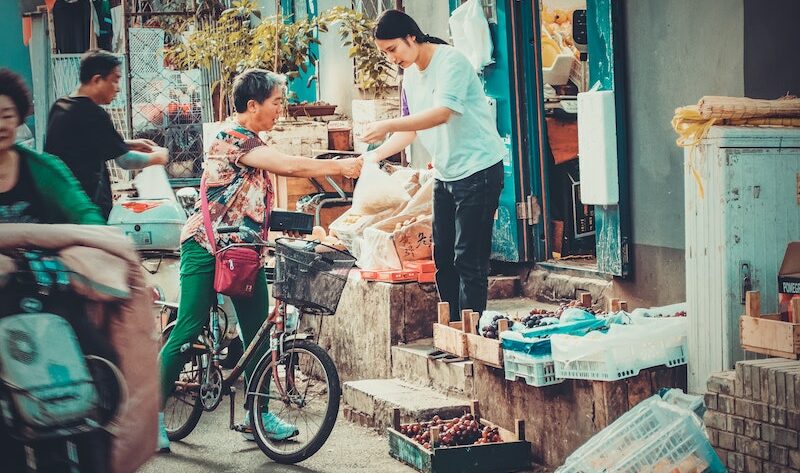In the world of travel, ecotourism is a hot topic right now.
And rightfully so, especially when considering that everything we do on a trip, from the transportation we take to the foods we eat and the souvenirs we buy, has an impact on the Earth.
To help you leave less of a carbon footprint, here are some eco-friendly travel tips for a more sustainable trip experience.
1. Pre-Trip Planning
Going green when you travel isn’t just about what you do while on the road, it’s also about the steps you take before you leave home. If you want to make it look like you aren’t away to prevent burglaries, leave your lights on a timer.
Also, make sure to unplug all electronics.
Even if they are turned off, simply having them plugged in uses electricity. You should adjust your thermostat. If it’s winter, set it to 60 degrees Fahrenheit to keep the pipes from freezing and in the summer, turn off any cooling systems.
Additionally, it is beneficial to stop all newspaper and magazine subscriptions while away, and compost any fruits, vegetables, bread and flour products, and expired boxed foods before you go.
2. Use “Leave No Trace” When Exploring The Outdoors
The “Leave No Trace” philosophy refers to the idea of leaving the natural areas you explore exactly as you left them when you arrived.
This means if you go camping in the woods, once you leave nobody should be able to tell you were ever there.
Bring trash bags so you can take your garbage out with you, refrain from littering and double-check any camping or picnicking areas for left-behind items.

3. Stay At An Eco-Lodge
With ecotourism on the rise, many accommodations are trying to keep up.
Travelers now have a range of property choices that are environmentally-friendly, from basic ecolodges without electricity to 5-star luxury hotels crafted from recycled materials.
Before booking your hotel, check to see its green practices and search around to see if there are any other accommodations doing it better.
4. Learn To Travel Plastic-Free
Plastic is a regular item in our everyday life, especially when we travel.
We drink from plastic water bottles, eat take out from plastic containers, and buy toiletries in plastic packaging.
Even if you don’t think you can go 100% plastic-free when you travel, can you try to reduce the amount of plastic you use?
Some tips and tricks to reduce your plastic use on the road include using natural toothbrushes, making your own natural toothpaste and beauty products, putting takeout food in tiffin boxes, carrying groceries in re-useable string bags and opting to shave with metal razors.
5. Travel Slowly
While some travelers like to experience as many cities as possible on a trip, re-locating every other day, this isn’t the most environmentally-friendly option.
Slow travel leaves less of a carbon footprint, as you’re using less fuel to get around.
Moreover, you’ll be experiencing a place more fully and really getting to know the destination you’re in.
That being said, if you must travel my next point is particularly useful.

6. Take Transportation That Uses Less Fuel
While nobody is expecting you to walk from city to city – although, if you can, that’s great – you can make better decisions when deciding on transportation.
If you can help it, try not to fly to your destination.
The height of the plane in the air makes it one of the worst transportation options. When you must fly, try to book a direct flight to minimize the negative impact.
Additionally, opting for the train or bus over a car is a wise decision; however, for those times when a car is necessary, try to rent a hybrid, carpool or, better yet, do both.
Once at your destination, skip bus tours, cab rides, and driving and see as much of the city as you can on foot, Segway or bike.
Not only will you be helping the planet, but you’ll also be seeing more and having a richer experience.
If you’re feeling adventurous, you can also opt to try one of the more quirky, planet conscious transport options, like a pogo stick, couch bike, pedal-powered kayak or a mechanical walking rickshaw.
7. Sign Up For An Eco-Tour
Now an eco-tour doesn’t just mean you go outside on the tour or you learn about animals. An eco-tour should be locally operated and allow for participants to experience nature in a way that is educational while fostering an understanding of the environment.
Furthermore, the tour company should concentrate on conservation as well as putting money into the local economy.
If you’re looking to book a longer group travel tour, two of my favorite companies are Intrepid Travel and G Adventures.
While there are many excellent travel companies out there that place an emphasis on the environment, I can personally vouch for these two as I have toured with them both.
Throughout both tours, their commitment to the environment and local people was obvious, which I also felt helped me to understand the places visited on a deeper level.
8. Reduce The Amount Of Laundry You Do
While you may think you need to wash every article of clothing after every wear this isn’t always necessary.
I’m not saying if you just went on an intense uphill hike or went jogging that you should re-wear your outfit, but if you wore a shirt out to dinner or a pair of jeans to go walk around a church, does that really constitute a need to do a load of laundry?
If you really must, opt to hand wash your clothing instead of using a washer and dryer. Also, when staying at a hotel, try to reuse your towels and sheets as much as possible, as this helps save water and energy.
9. Shop Locally
When food and goods are imported they must be flown or shipped, meaning a large carbon footprint is left behind.
Instead of purchasing something made in China when you’re visiting Africa, try to purchase food and goods that are from as nearby as possible.
Not only is this better for the environment, but you’ll also be helping local artisans and farmers and having an authentic local experience.

10. Use Environmentally-Friendly Gear
Every day, travel companies are getting more and more creative with how they produce their gear.
For example, you can buy items made from recycled and sustainable materials or solar-powered gadgets.
Doing a bit of research into which pieces of gear are sustainable is also beneficial, and companies that make this easy for you are usually best.
For example, Timberland puts an “Our Footprint” label on their products to help consumers make informed decisions.
Additionally, opting for used items is also a good idea because it keeps these things from being thrown out. It’s also great to support organizations trying to help the Earth.
My favorite eco-friendly company is REI (affiliate link).
Their gear is not only high-quality but also they donate millions of dollars to help conservation efforts each year as well as regularly host trail cleanups, fundraisers, and nature hikes.
Moreover, they have numerous sustainable goals for the organization like becoming climate neutral in its operations and a zero-waste-to-landfill company by 2020.
Do you have any eco-friendly travel tips to add?
This post was adapted from the editor’s original article on Gadling
Jessica Festa
Latest posts by Jessica Festa (see all)
- A Culturally-Immersive Adventure In Mongolia’s Altai Mountains - Jul 8, 2023
- This Recipe Sharing Platform Supports Women In The Culinary Industry (Labneh Recipe Included!) - Nov 5, 2020
- Hiking The Mohare Danda Community Eco-Trek In Nepal - Jun 3, 2020
- 6 Important Questions For Choosing A Responsible Yoga Retreat - May 18, 2020
- How To Create & Grow A Profitable Blogging Business (Ethically) - Jan 18, 2020










There are a lot of negativity in this earth. How sad and slowly our ecosystem is dying. We should start appreciating eco friendly systems. Love this tips. Good work!